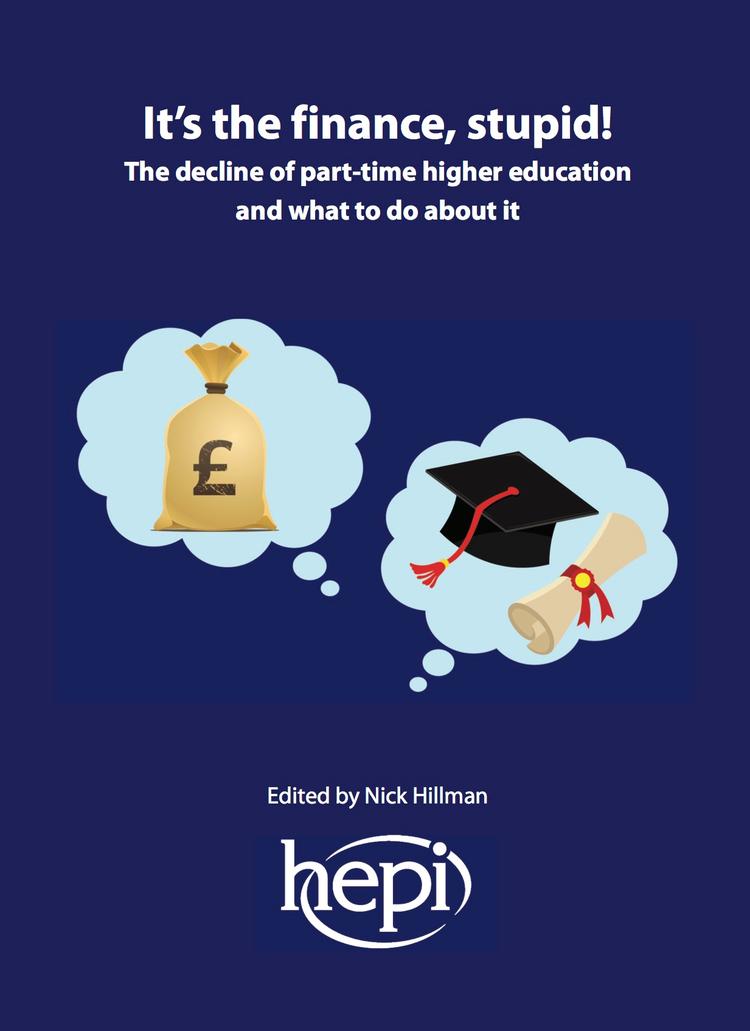Age should not matter. How to address the worrying decline in mature learners

The numbers of mature part-time and full-time learners in higher education has declined by 61 per cent since 2010, according to recent research from the Office of Fair Access (OFFA).
The reasons appear to be blindingly obvious. The tripling of university fees in 2012 has had a major impact. Writing in the Times Higher, Peter Horrocks, Vice-Chancellor of the Open University, says that the clearest evidence that affordability is the key issue in England comes from Scotland, which has not experienced the same funding changes or experienced the same drop in numbers.
Not everything can be blamed on the rise in fees, however. Certainly, mature students may have additional financial pressures such as rent or mortgages, along with family commitments and problems balancing work with studying. But there are other issues. Our higher education system is designed primarily around the needs of 18 to 20 year-old school and college leavers studying full time. Some universities are doing well in attracting students from disadvantaged backgrounds as part of their widening participation efforts, but almost one third of targets relating to part-time students (which make up 90 per cent of all mature learners) failed to be met by universities in 2014/15.
 “The collapse in part-time study is arguably the single biggest problem facing higher education at the moment,” says Nick Hillman, Director of the Higher Education Policy Institute, in the 2015 report “It’s the finance, stupid! The decline of part-time higher education and what to do about it.”
“The collapse in part-time study is arguably the single biggest problem facing higher education at the moment,” says Nick Hillman, Director of the Higher Education Policy Institute, in the 2015 report “It’s the finance, stupid! The decline of part-time higher education and what to do about it.”
There are two main reasons why we must attract more mature learners into higher education. The first is all about social mobility. We need to create a society in which people, regardless of their background or personal circumstances, can benefit from education and fulfil their ambitions.. The second reason is economic. We have a skills shortage in the UK, particularly in areas such as IT, construction, catering and hospitality, teaching and health. The pool of expertise from across the EU is shrinking at the same time as the numbers of home grown 18 year-olds. Business leaders from the CBI, the Institute of Directors and the British Chambers of Commerce are all desperate to tackle the skills of the existing workforce, including through part-time higher education study.
“Higher education is a life-changing experience so it is very important that those with the talent and ambition to enter higher education as mature students are supported to do so, “ says Professor Les Ebdon, Director of the Office for Fair Access (OFFA). “It is not just about the fact that a degree opens doors to rewarding careers for those individuals. There are much wider benefits. The perspectives that mature students bring help enrich the academic discourse and improve the experience for all students. And, after graduation, they play an important role in creating a more highly skilled workforce to help businesses boost productivity.”
He adds: “Age should never be a barrier to learning new skills or improving your career prospects, and all universities and colleges should think seriously about their role in ensuring that adult learners are empowered to enter and succeed in higher education.”
We need to make it easier for adults to return to learning. Our further education system has a good track record in attracting adults, but the lessons learned about the importance of flexibility and support need to filter throjugh to more universities.
Research by OFFA and the Open University, released in August, shows that reaching older learners is not as easy as reaching school and college leavers because they are a heterogeneous group, not “captive in compulsory education settings”. Once engaged, universities need to ensure they retain their mature learners and offer a curriculum that meets their needs and personal circumstances. Case studies show that some universities are tackling this imaginatively with introductory programmes, flexible learning approaches and outreach targeted at older learners and there is no shortage of advice from organisations.
This advice can be summed up succinctly:
- The rules governing access to loans for mature learners need to change so that more of them can benefit.
- Course design in higher education needs to be reviewed to fit the needs of mature learners who may have other commitments such as family and work.
- More modular courses would mean that learners don’t have to pay for an entire undergraduate programme.
- Student ambassadors should include some older people.
- Universities should spend some of their access agreement money each year on outreach with disadvantaged adult learners.
- The government needs to consider how to incentivise universities to develop their offer to mature and part-time students.
- Employers should make it easier for employees to study as a way of improving workforce productivity and staff morale.
- The language around higher education needs to change so that the terms “young people” are not associated with learning.
In its latest report (launched on 16 October) “Understanding a whole institution approach to widening participation“. OFFA calls for fundamental changes in widening participation to bring about “a step change in access to higher education”. It urges universities to take a ‘whole institution approach’ to widening participation by embedding fair access at all levels, engaging across all areas of work and including senior management. The research contains case studies and an evaluation tool . OFFA hopes that each institution will use the tool to analyse how embedded access currently is in their work. The clear message is that by adopting a genuine whole institution approach where access is a key priority at every level changes will happen.
Jacquie Mutter, Chief Executive, OCN London
Professor Les Ebdon will be speaking at OCN London’s annual Accesst to HE conference on Wednesday 1 November at the Royal Overseas League in London. Find out more and book a place.











Responses